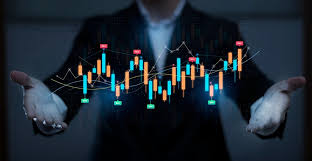
Understanding Forex Trading Brokers: Your Guide to Successful Trading
Forex trading has gained immense popularity over the years, with many individuals looking to profit from currency fluctuations. However, navigating the forex market requires the right tools, information, and most importantly, a reliable broker. Choosing the right broker is crucial for your trading success, so it’s essential to understand what forex trading brokers are and how to choose the best one for your needs. For more information on reliable options, you can check out forex trading brokers Global Trading Brokers.
What Are Forex Trading Brokers?
Forex trading brokers are firms that facilitate the buying and selling of currency pairs in the foreign exchange market. They act as intermediaries between traders and the financial market, providing the platforms that allow traders to execute trades. Brokers earn money mainly through spreads – the difference between the buying and selling prices of currency pairs – or through commissions on trades.
Types of Forex Brokers
Forex brokers can generally be categorized into three types: market makers, STP (Straight Through Processing) brokers, and ECN (Electronic Communications Network) brokers.
Market Makers
Market maker brokers create a market for their clients by providing liquidity and taking the opposite side of trades. They make money from the spread they charge between the bid and ask price. This type of broker is often considered convenient for beginners due to their user-friendly platforms.
STP Brokers
STP brokers send orders directly to liquidity providers. They don’t take positions against their clients but rather pass on their trades to the liquidity market. STP brokers provide tighter spreads and quicker execution compared to market makers, which can be advantageous for more serious traders.
ECN Brokers
ECN brokers link traders directly to the interbank market, allowing them to access real market prices. They charge a small commission and provide the tightest spreads. ECN brokers are generally preferred by professional traders who require the best execution speeds and transparency.
How to Choose a Forex Broker
Selecting the right forex broker involves several considerations. Here are some key factors to keep in mind:
1. Regulation

Ensure that the broker is regulated by a reputable financial authority. Regulatory bodies such as the FCA (Financial Conduct Authority in the UK), ASIC (Australian Securities and Investments Commission), and CySEC (Cyprus Securities and Exchange Commission) provide some level of investor protection and ensure that the broker operates fairly.
2. Trading Platform
The trading platform is your gateway to the forex market. It should be user-friendly, offer stable performance, and provide useful tools and features such as charting tools, technical indicators, and automated trading options. MetaTrader 4 (MT4) and MetaTrader 5 (MT5) are common platforms used by traders worldwide.
3. Spreads and Commissions
Evaluate the broker’s pricing structure. Some brokers offer tight spreads with commissions, while others may have wider spreads but no commissions. Consider your trading style to determine which structure is more advantageous for you.
4. Range of Currency Pairs
Make sure the broker supports a wide range of currency pairs to allow for trading flexibility. A broader selection means you can take advantage of more trading opportunities.
5. Customer Support
Good customer support is essential, especially for beginners. Check if the broker offers multiple ways to reach support (such as phone, email, and live chat) and whether they provide help in your preferred language.
Common Forex Trading Strategies
Once you’ve selected a broker, it’s important to have a solid trading strategy. Here are some common strategies that traders use:
1. Scalping
This strategy involves making small profits on very short-term trades, typically holding positions for seconds to minutes. Scalpers often rely on technical analysis to make quick decisions.
2. Day Trading
Day traders open and close their positions within the same trading day, avoiding the risk of price changes overnight. This strategy requires quick decision-making and a good sense of market trends.

3. Swing Trading
Swing traders hold positions for days or weeks to capitalize on market swings. This strategy requires a solid understanding of technical and fundamental analysis to identify potential turning points in the market.
4. Position Trading
Position traders take long-term positions based on fundamental analysis. They hold their trades for weeks, months, or even years, betting on the long-term appreciation of currencies.
Risk Management in Forex Trading
Effective risk management is crucial in forex trading. Here are a few key principles to keep in mind:
1. Use Stop Losses
Always use stop losses to minimize potential losses. A stop loss is an order that automatically closes your position once it reaches a certain level, helping protect your capital.
2. Manage Leverage
Leverage allows traders to control larger positions with a smaller amount of capital. While it can amplify profits, it can also quickly escalate losses. It’s vital to use leverage wisely and understand its effects on your account.
3. Diversify Your Portfolio
Avoid putting all your capital into a single trade or currency pair. Diversifying your investments can help spread risk and improve the chances of consistent profits.
4. Only Risk What You Can Afford to Lose
Set a clear budget for your trading activities and stick to it. Never risk money you cannot afford to lose, and avoid emotional trading decisions that could jeopardize your financial situation.
Conclusion
Choosing the right forex trading broker is a critical step toward successful trading. By understanding the different types of brokers, how to select the right one, and employing effective trading strategies and risk management techniques, you’ll be better prepared to navigate the forex market and work towards your financial goals. Remember, continuous learning and practice are key components of becoming a successful trader. With dedication and the right broker, you can take full advantage of this dynamic market.
